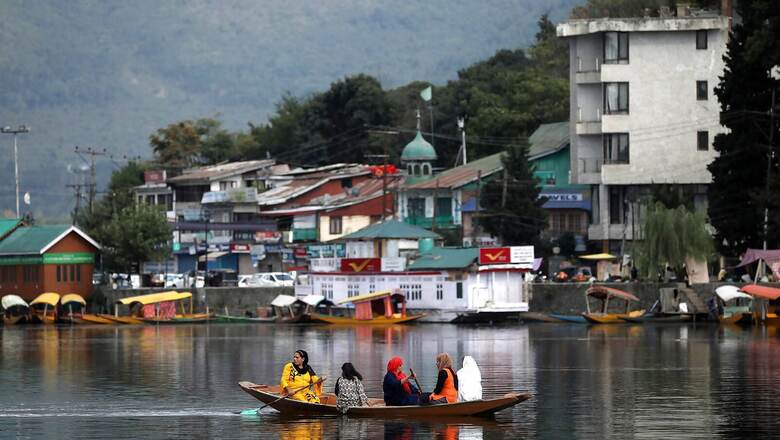
views
The narrative of Kashmir has taken different shapes in the lives of people across India and it still stands as a very interesting topic of discussion among many stakeholders. While Kashmir has always been in the news for political paradigm shifts, killings, stone pelting etc, surprisingly representing the other side has been neglected too nicely which might have led to relevance and cohesion.
There is more to Kashmir than apples, walnuts and mountains. A place where Sufis curated mystic verses, where lal-ded/laleshwari saw Shiv, where writers found poetry and where singers found songs in the breeze.
Kashmir has been always discussed through the lens of authorities and vested interests. When we talk about modern-day Kashmir, the narrative we forget to mention is how women have equally played a role in shaping it. It’s very important to understand what type of information has been produced to build the Kashmir narrative and by whom.
This article is an attempt to represent a fresh perspective from women in Kashmir.
Kashmiri women have been rarely discussed in the media and not much work has been carried out to make the discourse more gender-neutral. It is personally very important for me to help people understand women vis-à-vis the ongoing Kashmir dynamics.
The women of Kashmir, despite long decades of turmoil, have not let that be a roadblock, and shine in every field of life. The propaganda voices in the past tried to paint Kashmiri women and their life a certain way which was far from truth.
Kashmiri women didn’t even leave the place to pursue higher education, let alone for jobs. But the truth has changed for the better, be it in Bengaluru or Delhi. Kashmiri women can be seen in every sphere of life contributing to national progress and building careers. They are not shying away.
Kashmiri women are flying planes, contributing to academics, working in public policy, leading newsrooms and changing the scenario of male-dominated journalism in Kashmir.
Four lakh women in over 48,000 Self-Help Groups (SHGs) under the Jammu and Kashmir Rural Livelihoods Mission (UMEED) have revolutionised women entrepreneurship at the grassroots level.
Schemes for women empowerment are also being implemented, like the Awareness Generation Projects for Rural and Poor Women, Condensed Course of Education for Adult Women, Family Counselling Centres, Scheme for Working Women Hostels, Swayamsidha Scheme, (an SHG-based programme with an emphasis on convergence activities aimed at ensuring that the members of such groups avail all relevant schemes in an integrated and holistic manner), Umeed (a government flagship project to empower women in Kashmir), Sher-i-Kashmir Employment and Welfare Programme, educational loans, micro-credit loans etc.
A plethora of government schemes are making an impact both in the education and employment sectors. For example, the Pradhan Mantri Kaushal Vikas Yojana has resulted in the skill development and employment of a number of Kashmiri youth, especially women.
In 2021, Kashmir University had 94 gold medallists, of whom 77% were girls. Similarly, during the Islamic University of Science and Technology convocation, most gold medallists were women. In 2022, two women from Kashmir were awarded Nari Shakti Puraskar, but again the discussion around this topic will be very less.
Women in Kashmir have mostly been painted as victims or as resilient. I don’t doubt their resilience for a split second but we also need to acknowledge that resilience does not only work in violent situations, it exists in excelling at professions too.
It begs the question whether the Kashmiri society is unaccepting of the fact that young women can choose for themselves and break the shackles of victimhood.
Though not much has been done for Kashmiri women living outside, the central government needs to ensure that they are provided proper incentives and platforms so that they find a clear path to work in other parts of the country.
Kashmiri women should be given more options to choose so their decisions are unaffected by state boundaries. The fact which has been neglected is that the more Kashmiri women are empowered, the more Kashmiri society will be empowered.
The author is a public policy professional from J&K and is currently working in New Delhi. Her areas of work include gender, inclusion, conflict and development. Views expressed are personal.
Read all the Latest Opinions here




















Comments
0 comment